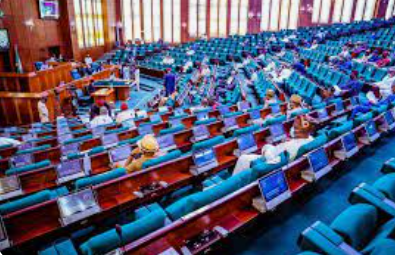The Public Accounts Committee (PAC) of the House of Representatives has intensified its scrutiny of government ministries over alleged financial mismanagement, signaling a renewed commitment to fiscal accountability and transparency. The committee, chaired by Bamidele Salam, has publicly expressed its deep concern over the persistent disregard for its summons by various Ministries, Departments, and Agencies (MDAs). This growing trend of government bodies failing to respond to audit queries issued by the Auditor-General for the Federation is seen as a significant impediment to effective governance and the prudent management of public funds. The PAC’s recent actions highlight the urgent need for greater cooperation and accountability within the Nigerian government.
A focal point of the PAC’s investigation is the Federal Ministry of Labour and Employment, which faces 32 audit queries related to the 2020 audit report. Despite seven invitations from the committee over five months, the ministry has consistently failed to appear before the PAC or provide the necessary documentation to address these queries. This lack of cooperation has led the committee to call for the questioning of two former Permanent Secretaries, Williams Alo and Yerima Tafa, who served as the ministry’s accounting officers during the period the alleged financial infractions occurred. The PAC asserts that these individuals should be held accountable for the purported mismanagement of N3.2 billion. The current Permanent Secretary, Saliu Usman, has also been given a 72-hour ultimatum to appear before the committee to address seven audit queries from the 2021 financial report. Failure to comply could result in the committee upholding the recommendations of the Auditor-General, potentially leading to further investigations and sanctions.
The alleged financial irregularities within the Ministry of Labour and Employment encompass a range of issues, including an unaccounted allocation of N351 million to the Geneva Labour Desk, despite the desk already receiving an appropriation from the National Assembly. Further concerns include payments totaling N226 million without evidence of project execution, unretired cash advances amounting to N344 million, a N7 million payment for consultancy services without evidence of execution, and abuse of cash advance policies and regulations to the tune of N238 million. The ministry also faces scrutiny for payments totaling N497 million for non-existent job centers in three parts of the country, a N144 million payment for a non-executed contract in Kaduna, and an unsubstantiated contract award of N67 million. These alleged instances of financial mismanagement, totaling approximately N3.2 billion, paint a concerning picture of potential corruption and a lack of fiscal responsibility within the ministry.
The PAC’s actions extend beyond the Ministry of Labour and Employment. During a public hearing, Chairman Salam highlighted similar concerns with other ministries, including the Federal Ministry of Humanitarian Affairs and Poverty Alleviation (six major queries), the Federal Ministry of Women Affairs (five queries), and the Federal Ministry of Transportation (five queries). The Permanent Secretaries of these ministries have also been given 72-hour ultimatums to appear before the committee and address the audit queries raised against their respective ministries. This indicates a broader effort by the PAC to enhance oversight and ensure accountability across multiple government agencies.
Salam emphasized the critical need for Nigeria to address revenue leakages and loopholes, stressing the importance of a robust and effective auditing system. He pointed out that the National Assembly often faces criticism for perceived inaction in its oversight role. The PAC’s current actions aim to demonstrate its commitment to holding MDAs accountable and ensuring that they deliver on government objectives and justify their budget allocations. This proactive approach seeks to strengthen public trust in the government’s ability to manage public funds responsibly.
The PAC’s focus on these ministries and its insistence on holding individuals accountable signifies a crucial step towards greater transparency and fiscal responsibility within the Nigerian government. The committee’s actions send a clear message that disregard for audit queries and parliamentary summons will not be tolerated. The outcome of these investigations and the subsequent actions taken will be closely watched as a gauge of the government’s commitment to tackling corruption and improving financial management practices. The effectiveness of the PAC’s efforts will depend on the cooperation of the MDAs and the willingness of relevant authorities to enforce accountability measures. This ongoing scrutiny by the PAC represents a vital component in strengthening Nigeria’s governance and ensuring that public resources are utilized effectively and for their intended purposes.














